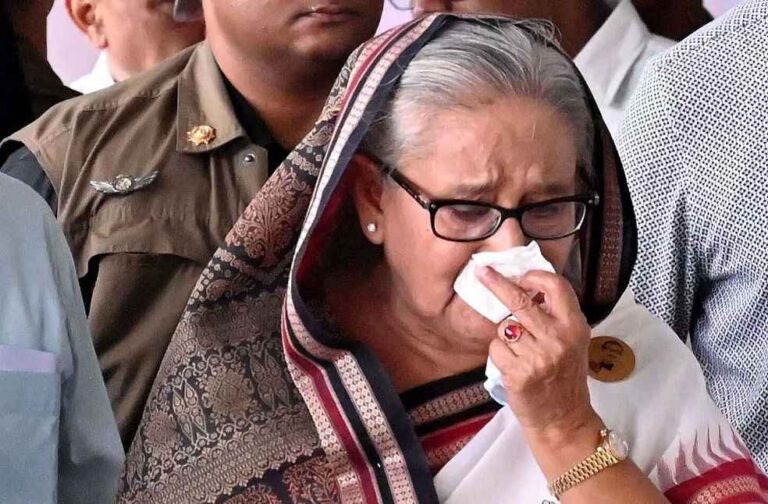Dhaka: Bangladesh’s interim government has revoked the diplomatic passport of former Prime Minister Sheikh Hasina, who fled to India following a student-led uprising. The decision, announced on Thursday, puts Hasina in a precarious position as she remains in exile.
The revocation coincides with the arrival of a United Nations team in Dhaka to assess possible investigations into human rights violations during Hasina’s administration. In the weeks leading up to her ousting, over 450 people were reportedly killed, many by police, as protests against her rule intensified.
Sheikh Hasina, who governed Bangladesh for 15 years, fled her official residence in Dhaka on 5 August when demonstrators stormed the premises. The interim government, led by Nobel laureate Muhammad Yunus, has since cancelled diplomatic passports for Hasina, her former ministers, and ex-lawmakers.
“The former prime minister, her advisers, the former cabinet, and all members of the dissolved national assembly were eligible for diplomatic passports by virtue of their positions,” the home ministry stated. “If they have been removed or retired, their diplomatic passports must be revoked.”
The interim government indicated that Hasina and other former officials could apply for standard passports, but approval would require clearance from two security agencies.
Hasina’s tenure was marked by allegations of human rights abuses, including the detention and extrajudicial killings of political opponents. A preliminary UN report highlighted “strong indications” that security forces used excessive force during the protests.
Yunus has pledged cooperation with UN investigators, stating that his administration will provide the necessary support. Meanwhile, a war crimes tribunal, established by Hasina, has initiated investigations into recent unrest.
Sheikh Hasina, who resigned in August 2024 after months of protests, was Bangladesh’s longest-serving leader, holding office since. India, while hosting the ousted leader, continues to support the new leadership in neighbouring Bangladesh. However, granting asylum to Hasina presents a significant diplomatic challenge for India in its regional relations.
RELATED | Sheikh Hasina breaks her silence; ‘The murderers must be punished’



